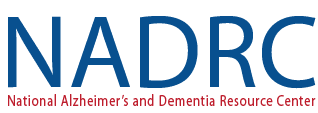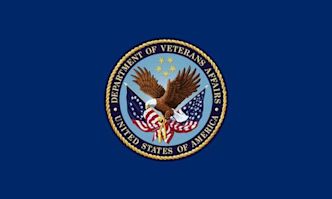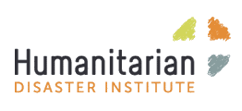
Lutheran Services in America is a network of 300 health and human service nonprofits, who each year collectively reach one in 50 people across 1,400 communities in the United States. We are the network’s national office dedicated to advancing innovative solutions that achieve a healthier, more equitable future for millions of people in America.
Through partnerships and collaboration, Lutheran Services in America leads programs that address the policy and practice changes that are needed so that all people in America can lead their best lives. We leverage our national network lens to identify trends and opportunities to scale success. Our work includes piloting promising solutions, evaluating results and sharing best practices with stakeholders across the health and human services sector.
The Lutheran Services in America network reaches one in 50 people in America each year. Our national network is united in its mission to transform lives and communities. Built on deep trust, open exchange and shared values, our national network model uniquely positions us to mobilize around ambitious goals and address complex challenges facing people and communities today.

HHCI is a comprehensive mental health resource serving the Houston community and beyond. Please go to the website to find their trainings and other resources.
Our Vision: The vision of HHCI is a world in which mental health care is easily accessible by all.
Our Mission: HHCI is dedicated to improving access to care for individuals and families affected by mental illness through education, training, clinical & supportive services, and research.
https://hopeandhealingcenter.org/

The Wellness Compass Initiative is a non-profit with a mission to enhance mental health and resilience in individuals, families, schools, and communities.
We offer a wide variety of high-quality yet inexpensive whole-person wellness resources. These resources can be used by individuals or in group settings.
Click HERE for more information.

The Conversation Project The Conversation Project is an initiative of the Institute for Healthcare Improvement, a not-for-profit organization that is a leader in health and health care improvement worldwide.
The Conversation Project® is a public engagement initiative of the Institute for Healthcare Improvement (IHI). Our goal is both simple and transformative: to help everyone talk about their wishes for care through the end of life, so those wishes can be understood and respected.
It’s time to share the way we want to live through the end of our lives. And it’s time to communicate about the kind of care we want and don’t want for ourselves.
We believe that the place for this to begin is at the kitchen table—not in the intensive care unit—with the people who matter most to us, before it’s too late.
Together we can make these difficult conversations easier. We can make sure that our own wishes, and those of the people who matter most to us (our loved ones, friends, chosen family), are both understood and respected. The Conversation Project offers free tools, guidance, and resources to begin talking with those who matter most about your and their wishes. Click here for more information: https://theconversationproject.org/

Aging Alone Together
DOROT is the Hebrew word for “generations." In 1976, it inspired our founders to engage with their older neighbors. The founders of DOROT, then recent graduates of Columbia University’s social work program, were pioneers in their approach to serving their older neighbors with the ultimate goal of alleviating social isolation.
Recognizing the severe consequences of social isolation and loneliness on physical and mental well-being, DOROT has been a leader and innovator in addressing these problems since our founding 48 years ago. Today, the U.S. Surgeon General describes our mission as vital to alleviating what is now a crisis in the United States.
CLICK HERE for the website.

The Partnership Center leads the department's efforts to build and support partnerships with faith-based and community organizations in order to better serve individuals, families and communities in need.
The HHS Center for Faith-based and Neighborhood Partnerships (known hereafter as "The Partnership Center") is the Department’s liaison to the faith community and to grassroots organizations.
The Partnership Center exists to engage and communicate with faith communities and grassroots organizations, ensuring that local institutions, which hold community trust, have up-to-date information regarding health and human service activities and resources in their area.
Through the Center, we work to build partnerships with community and faith-based organizations, which help HHS serve individuals, families, and communities in need. The Partnership Center works in collaboration with any and all of the 27 offices and agencies that make up HHS to extend the reach and impact of HHS-related programs into communities, as well as to encourage faith-based and community organizations in their work.
The Center works to enable faith-based and community organizations to partner with the government to achieve the goals of HHS.
https://www.hhs.gov/about/agencies/iea/partnerships/index.html

National Alzheimer’s and Dementia Resource Center
The Administration on Aging/ Administration for Community Living (AoA/ACL) funds the National Alzheimer’s and Dementia Resource Center (NADRC). The goals of the NADRC include, but are not limited to, the provision of expert technical assistance to AoA/ACL and its grantees, as well as making program information and resources available to individuals and organizations outside the Alzheimer’s grantee community.
Resource center staff provide individualized technical assistance to grantees and AoA/ACL program staff when requested. This assistance can include consultation on specific topics related to Alzheimer’s disease or dementia, grant reporting requirements and submission process, or other topics requested by grantees. The expertise of the Resource Center team is broad, with combined experience and knowledge related to a variety of topics including, dementia-capable systems, supportive services for people with dementia and caregivers, evidence-based caregiver interventions, behavioral interventions for people with dementia, data collection and reporting, and program evaluation.
No one should face Alzheimer's alone.
Browse helpful information and resources for those living with or caring for someone with Alzheimer's or other dementias.
Alzheimer's Help & Support | Alzheimer's Association

We believe aging well is something every American deserves—regardless of gender, color, sexuality, income, or ZIP code.
We will deliver the resources, tools, best practices, and advocacy our nation needs to ensure that every person can age with health and financial security.
That’s our renewed promise to you. You have an even stronger ally.
Because aging well for all is a matter of equity. A matter of dignity. And a matter of justice https://www.ncoa.org/

The American Society on Aging unites, empowers and champions everyone striving to improve aging.
Since 1954, ASA has developed and led the largest, most diverse community of professionals working in aging in America. As a result, ASA has become the go-to source to cultivate leadership, advance knowledge and strengthen the skills of our members and others who work with and on behalf of older adults.
As we unite, empower and champion our community, we have the unique responsibility to be a strong voice and thought leader on critical systemic issues that influence how we age. As America struggles with how best to respond to the need for greater inclusivity, anti-ageism and equity, ASA sees its responsibility as a leader to drive the discourse and advocate for the change necessary to address these issues in aging. Click here to access their resources: https://asaging.org/
Department of Veteran's Affairs
United States of America 
This website serves many purposes for veterans and their families. That said, among the pages are resources for veterans as they age, for caregivers, how to help a parishioner find a VA facility, how to access other resources such as medications, and more. Go to https://www.va.gov/health/ and see what links you would like to subscribe to if you serve parishioners who are veterans and have health access questions. Even if you don't sign up for regular communications on available topics, I encourage you to familiarize yourself with what you can find if you need resources for veterans or their families.

About Have You Ever Served in the Military?
Managed and designed by the American Academy of Nursing, Have You Ever Served in the Military? is an initiative to improve the health of Veterans. Have You Ever Served in the Military? encourages healthcare providers to ask about and document their patients’ military background. In 2013, the Academy, with the assistance and cooperation of State Directors of Veterans Affairs, launched Have You Ever Served in the Military? in 10 states: Alabama, California, Connecticut, Florida, Illinois, New Jersey, Ohio, Texas, Virginia, and Washington. By April of 2015, Have You Ever Served in the Military? was rolled out in all 50 states.
https://www.haveyoueverserved.com/

Religious and spiritual values are important to patients coping with cancer.
Studies have shown that religious and spiritual values are important to Americans. Most American adults say that they believe in God and that their religious beliefs affect how they live their lives. However, people have different ideas about life after death, belief in miracles, and other religious beliefs. Such beliefs may be based on gender, education, and ethnic background.
Many patients with cancer rely on spiritual or religious beliefs and practices to help them cope with their disease. This is called spiritual coping. Many caregivers also rely on spiritual coping. Each person may have different spiritual needs, depending on cultural and religious traditions. For some seriously ill patients, spiritual well-being may affect how much anxiety they feel about death. For others, it may affect what they decide about end-of-life treatments. Some patients and their family caregivers may want doctors to talk about spiritual concerns, but may feel unsure about how to bring up the subject. Serious illnesses like cancer may cause patients or family caregivers to have doubts about their beliefs or religious values and cause much spiritual distress. Some studies show that patients with cancer may feel that they are being punished by God or may have a loss of faith after being diagnosed. Other patients may have mild feelings of spiritual distress when coping with cancer.
CLICK HERE TO FIND EXCELLENT RESOURCES ON SPIRITUALITY IN CANCER CARE.

Mental Health America (MHA) - founded in 1909 - is the nation’s leading community-based nonprofit dedicated to addressing the needs of those living with mental illness and to promoting the overall mental health of all. Our work is driven by our commitment to promote mental health as a critical part of overall wellness, including prevention services for all; early identification and intervention for those at risk; integrated care, services, and supports for those who need it; with recovery as the goal.
To learn of their resources and to sign up for periodic communication, click on this link: https://www.mhanational.org/

NAMI is the National Alliance on Mental Illness. We are the nation's largest grassroots mental health organization.
We are dedicated to building better lives for the millions of Americans affected by mental illness. Our Alliance includes more than 700 NAMI State Organizations and Affiliates who work in your community to raise awareness and provide support and education to those in need.
NAMI | National Alliance on Mental Illness

National Organization for Rare Disorders
NORD advances practical, meaningful, and enduring change so people with rare diseases can live their fullest and best lives. Every day, we elevate care, advance research, and drive policy in a purposeful and holistic manner to lift up the rare disease community. CLICK HERE FOR MORE INFORMATION
Get help with access to medication, diagnostics, caregivers support,
and other needs.
Learn more about 1,200 rare diseases
through our comprehensive database.
NORD® Rare Disease Centers of Excellence are diagnosing and treating thousands of rare disease patients.
Assist researchers throughout the world better understand and treat rare diseases by enrolling in our registry and sharing your experiences.

Cancer Companions was founded in September of 2011 when Executive Director, Karen Tripp, trained 3 volunteers to lead the Seeing God in Your Cancer Journey program at a local church. From there, additional Bible studies were printed, accompanying videos produced and our national event 30 days of Cancer Prayer was launched. Since then we have grown to have 71 active churches in 24 states with over 400 volunteers, making Cancer Companions the premiere national Christian Cancer Ministry.
Presented by Karen Tripp, MS LMFT Founder and Executive Director of Cancer Companions.
Our 10 Year, God-Sized Goal: By 2033, Cancer Companions will provide 5 million engagements through cancer prayers, scriptures and interactions to those impacted by cancer. Engagements include; social media outreach, e-newsletters, prayer team requests, 30 days of Cancer Prayer event, and volunteer connections (both group and individual).
Click here for the Cancer Companions Website: https://www.cancercompanion.org/

Established in 1985, The ALS Association (Amyotrophic Lateral Sclerosis Assn) is the only national nonprofit organization fighting ALS on every front. By leading the way in global research, providing assistance for people with ALS, coordinating multidisciplinary care through certified clinical care centers, and fostering government partnerships, The Association builds hope and enhances quality of life while aggressively searching for new treatments and a cure.
As the preeminent ALS organization, The Association leads the way in research, care services, public education, and public policy — giving help and hope to those facing the disease. The Association provides comprehensive patient services and support to the ALS community. The mission of The ALS Association is to discover treatments and a cure for ALS, and to serve, advocate for, and empower people affected by ALS to live their lives to the fullest. Click HERE for more about the ALS Association and their resources.

We have tips, tools, books, and more to help you or a loved one live with vision loss. Browse our resources below—support is a click away.
Resources – Vision Loss Resources

HLAA is your voice. We are a nationwide community of support bringing
education, advocacy, hope and empowerment to the growing number of
people with, and at risk of, hearing loss.
HEARING HELP - Hearing Loss Association of America

The Humanitarian Disaster Institute (HDI) offers resources for disaster spiritual and emotional care, disaster ministry, and for humanitarian development. These resources are intended for lay helpers, congregations, and faith-based organizations, as well as for students and professionals in the fields of public health, mental health, and disaster management. At this site you can learn more about and enlist training in Spiritual First Aid. To read more and sign up for resources, use this link: https://www.wheaton.edu/academics/academic-centers/humanitarian-disaster-institute/resources/

Brain Injury Association of America
Founded in 1980, the Brain Injury Association of America (BIAA) is the leading national organization serving and representing individuals, families and professionals who are touched by a life-altering, often devastating, traumatic brain injury (TBI). Together with its network of more than 40 chartered state affiliates, as well as hundreds of local chapters and support groups across the country, the BIAA provides information, education and support to assist the 3.17 million Americans currently living with traumatic brain injury and their families.
https://biausa.org/

Traumatic Brain Injury
These resources are provided the the Washington State Department of Social and Health Services and the Washington Traumatic Brain Injury Strategic Partnership Advisory Council.
What is Traumatic Brain Injury or TBI? A Traumatic Brain Injury (TBI) is an injury that affects how the brain works. Anyone can experience a TBI or find themselves in a position of caretaking for someone experiencing a TBI. Traumatic brain injuries affect people of all ages and backgrounds.
DSHS is committed to increasing public awareness of TBI and connecting the TBI community to Information and Referral, resources, and person-driven support.
To learn more and get connected, choose one:
https://www.dshs.wa.gov/altsa/traumatic-brain-injury/traumatic-brain-injury

The EKR Foundation is a non-profit organization inspired by the life of psychiatrist, humanitarian, and hospice pioneer Dr. Elisabeth Kübler-Ross. It’s in the spirit of embracing all of life — which includes death — that we further her mission and vision through collaborations, education, and advocacy. Use this link to learn more and sign up for emails/resources: https://www.ekrfoundation.org/
|










